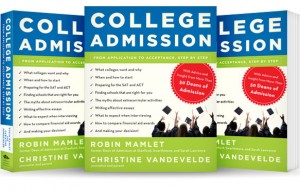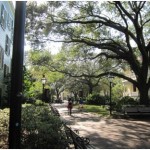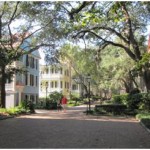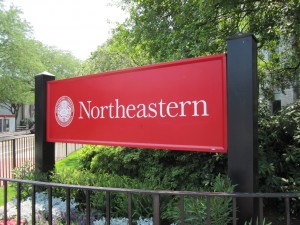CLICK HERE to sign up for our Newsletter!
call us 713-405-1193
call us 713-405-1193
Blog
Thoughts from an All-in-One Academics Crash Course Student
February 14, 2013
by All-in-One Academics
0 Comment
Summer will be here before you know it – and for juniors in high school, that means it’s time to get serious about planning for the college application process. One way to get ahead of the curve is to sign up for one of our College Application Crash Courses – an intensive week-long workshop intended to provide expert guidance to students as they complete the written components of their college applications – all before senior year even starts! But don’t take it from us – take it from a student who took part in one of our sessions last summer and is now finishing up senior year and preparing to head off to Philadelphia to join Penn’s class of 2017! The following is an excerpt from Julian answering questions about his experience last summer with instructors Jessica and Jamil.
– What did you think was the most helpful part of the crash course?
The most helpful part of the crash course was the help that we received with the infamous common app essays. They are simple questions, but such simplicity clutters the thoughts and responses of nervous applicants. Jessica and Jamil were able to guide us through the process, and when we did not know where to start, they helped us brainstorm ideas of what to write. Although many of us did go through several drafts and changes, we were able to produce admissions-worthy essays.
– Do you think your applications would have turned out differently if you were not part of a crash course? How?
If it weren’t for the crash course, I can see my application lacking strength and personality. My school, KIPP Houston High School, does a pretty good job informing us on the college process. However, it does not compare to the amount of help Jessica and Jamil provided us with. It definitely boosted my confidence level, and since many universities do not see you in person during the review process, the crash course was able to help me implement my personality, morals, and stories necessary for universities to know and understand.
– What would you tell a student who is thinking about taking a crash course next summer?
If I could give any advice, I would tell them to be prepared. In other words, the crash course had me working the entire day, and I would advise a prospective participant to be ready for all the hard work that Jessica and Jamil put you through. It is non-stop work with filling out the meticulous common app, and it’s even more strenuous working through revision after revision on the essays. In the end, however, it is definitely worth the hard work. When all your friends and stressing over the college process, you could sit back because you got it done and revised over the summer.
Thank you to Julian for providing us with information about his experience last summer and best of luck when you start at Penn in the fall! For more information about our Crash Courses, please click here.
Announcing our SAT/ACT and College Application Study Abroad Program!
Exciting news! 
This summer, we’ll be offering our Elite SAT/ACT Prep Course and our College Application Crash Courses as part of a study abroad program in Spain!
We’ve partnered with Sol Abroad, a leader in Spanish immersion programs in Texas – to offer our SAT/ACT Prep Courses and our College Application Crash Courses as an add-on to their fantastic program running this summer in Granada.
Students will be totally immersed in Spanish culture, living with a host family, going on excursions, making new friends – and preparing for your SAT/ACT tests or completing your college applications before senior year even starts! This is a great way to make an already amazing experience even better! Here are the details:
Summer 2013: June 15 – July 13
With SAT/ACT Prep Course: $5,290
With College Application Prep Course: $6,290
This program includes orientation, tuition and classes, excursions, cultural activities, housing, meals, and more. For more information, or to sign up, please visit www.allinoneacademics.com/spain. For more information about Sol Abroad, visit their website at www.solabroad.com.
We hope you’ll join us for this amazing opportunity!
Seeking Cool, Out-of-State Schools: College of Charleston
We had heard about College of Charleston for years, and with the rising number of students in our program seeking cool, out-of-state public schools, we decided to take a look in person. Here’s what we found: College of Charleston merits serious consideration.
College of Charleston is a liberal arts college. As such, it offers a wide array of majors, including business, but all majors require a core set of classes from a variety of disciplines. At the same time, College of Charleston has a few unique majors that some kids might want to consider. The Arts Management program is second-to-none, with students getting behind-the-scenes experience in the arenas of nonprofit and gallery work. Students have a set of well-connected professors who help them score internships at museums, galleries, and festivals, so students graduate with the experience to go out and get real jobs in the industry. Additionally, the Historic Preservation major is for students who want to learn how to maintain historical architecture and art. It’s a wonderful program, especially in Charleston, because of the antebellum and turn-of-the century homes in the Battery. Finally, the Hospitality and Tourism major is excellent, not only because of the tremendous faculty, but also because of Charleston’s great touristic value. This school contrasts with Houston’s Conrad Hilton School of Hotel and Restaurant Management because the exposure is so different; Charleston has far more leisure tourists, while Houston has many corporate travelers, just in town for business. As a result, students who hope to work in the resort industry would likely find greater opportunities here, considering that Kiawah and Hilton Head are so close by.
With respect to social life, there is a small Greek life – about 19%. Students not participating in sororities and fraternities enjoy multiple cultural and social opportunities, more so than at many other public colleges, primarily because of the location in Charleston – this place is just fun, and the city itself just breathes good times.
Housing is interesting because aside from the standard freshman dorms, Charleston also has a collection of historic homes on campus where students live. Theme-based housing, such as gender studies or foreign language or the Medical Manor, is located within these gorgeous old homes, and although they’re probably rickety, they are amazing places for college kids to call home. Many kids also live off-campus, and we visited one of our students at his off-campus home. It was beautiful, and all he had to do to get to school was jump on his bike. The streets are safe and slow, and it would be a crime not to ride here – besides, it makes parking issues evaporate.
For our students who need accommodations for learning differences, Charleston can take care of most issues. They have a program called SNAP (no one can really put a finger on what the acronym stands for), which works with students who need extended time or notetaking or textbook accommodations. Also, in the Center for Student learning, students will find tutoring labs in every area, and if they don’t have a tutor in the subject you need, they will find one! It’s pretty awesome.
Now for the nitty-gritty: getting in. Charleston is getting more competitive, but the test score ranges are still doable. The average ACT score range for out-of-state students is 24-28. The average range for SAT Math and Critical Reading is 1100-1240. However, test scores don’t carry the highest weight here; grades and academic rigor are far more important. That means you should stick with those harder classes and put your nose to the grindstone. The truth is (always) that it’s better to aim for A’s than to strive for the cheerleading squad. And, if your numbers fall on the lower side, you should definitely fill out the optional personal statement. Yes, it is optional – but I make all of my students do it. Why? Well, because it’s a poor choice to forgo any chance you have to show your merit.
The final word:
Charleston is beautiful, low-key, and classy. I’m a clear supporter of the school because I think it’s big enough that you can see a new face every day, but small enough that you can get to know faculty members. I like the internship requirements here because it’s becoming more and more obvious that students without internships have a very hard time finding work in the long run.
However, Charleston doesn’t offer every major, a fact they readily admit. So, if you’re committed to engineering, this isn’t your spot. And, if fashion management or merchandising or design is in the cards for you, then look elsewhere. The reps here will be completely honest if they feel like your needs will be better met at a different college, so call them and ask before you invest time and energy in a visit or application. What you study is far more important than where you study (unless we’re talking Ivies or Stanford), so get your ducks in a row before making a decision.
Northeastern University: Many Co-ops ahead of the Curve
I’m not sure that my experiences at a liberal arts college were typical – since so little of what I wind up doing seems typical – but there was nothing practical about it. No one discussed possible careers for a Classics major or an Anthropology major; they were just areas of focus amid the well-rounded core curriculum. Well, let me tell you that I wish I had received a bit more guidance – maybe even just a sign here or there that a real world existed and that I was going to have to function in it. And, that’s what Northeastern does best.
The first time we mentioned to someone that we were going to visit Northeastern, the person responded, “Oh, you have to check out the co-op program!” Obviously, this person was from the Northeast and knew her way around the universities up there; she knew what set Northeastern apart from its peers. On the contrary, hardly anyone I’ve met south of the Mason-Dixon line has ever heard of it. It’s time to change that.
Northeastern builds actual work experience into its curriculum.
Every student at Northeastern participates in what’s called a Co-op. This Co-op program is sort of like an internship, but better. We’ve all seen comedic portrayals of the “intern” getting coffee, making copies, and taking out the trash, clear representations that the average intern is a glorified slave who may or may not learn anything about the business at hand. That’s why Northeastern runs a strict co-op system, in which the participating businesses are required to provide a certain amount of meaningful training, so that Northeastern kids can gain real experience and have the chance at getting real jobs!
Northeastern students spend at least six months working in a Co-op. During that time, they do not take classes or pay tuition. Instead, they get paid to work and see the innards of a functioning business. This step away from the college grind pays off. Some of the students find that they’ve indeed found their true calling through their Co-op work, while others learn that their talents are best suited elsewhere – a realization everyone would rather have during college, as opposed to after.
The Co-op is even cooler than it sounds because students have the option of doing their Co-ops practically anywhere in the world. There are active Northeastern kids everywhere, working up a storm and having fun in the process. I wish I could have had this option when I was in school!
Another Plus: It’s Right on the T in Boston
Northeastern isn’t in the center of Boston’s serious hubbub, but it’s really easy to get there. All you have to do is hop on the T, which is basically a monorail/subway/bus combo. It’s the noisiest public transportation on earth, but it runs like a champ and can get you anywhere you want to go in Boston.
Now, we will grant that Northeastern’s campus lacks the old-world beauty of some New England-area schools, but it makes up in ambition for what it lacks in aesthetics. And, it isn’t ugly by any stretch; it’s just not going to inspire Pindar to write an ode. In any case, do you want a good job when you graduate, or do you want frame-worthy photos of yourself in front of the library? Think long and hard…
– Jessica
Emerson College: Practical Career Foundations in the Artistic World
 I had heard of Emerson before. One of my favorite students of all time – Eric Helfman – recently graduated from there, and everything I saw in his college curriculum differed from my experience at Southwestern. This college may have a liberal arts component, but it is NOT a liberal arts college (even though technically it is). Note that Eric never had to take a math or science class, and every one of his humanities courses dealt with film or art in some way – hardly the typical liberal arts pathway. I was intrigued – so many of my students could benefit by attending a more hands-on, career-oriented college.
I had heard of Emerson before. One of my favorite students of all time – Eric Helfman – recently graduated from there, and everything I saw in his college curriculum differed from my experience at Southwestern. This college may have a liberal arts component, but it is NOT a liberal arts college (even though technically it is). Note that Eric never had to take a math or science class, and every one of his humanities courses dealt with film or art in some way – hardly the typical liberal arts pathway. I was intrigued – so many of my students could benefit by attending a more hands-on, career-oriented college.
Emerson specializes in artistic, communication, and media majors, so you won’t find a basic business or engineering major here. Instead, you will find top-notch industry equipment for budding journalists and cinematographers, high-end technology for future animators and sound editors, and Broadway-quality theaters for aspiring stage managers and set designers. And, its location complements this no-nonsense environment; it’s wedged right into the city, facing Boston Common. Students here are living and breathing the working world, even as they gain the skills to join it.
We were very impressed by the career immersion Emerson offers. For instance, filmmakers get to work with real SAG actors on location, which is cool and exciting, but they also have to deal with the less glamorous parts of filming, like requesting permits from the city – an important insight into bureaucracy from the very beginning. Similarly, the writing program at Emerson broadens its curricular focus to incorporate the complicated publishing process, giving students an understanding of the business world of writing. It’s just not a cotton-candy fantasy land at Emerson; they want their students to be able to work when they graduate… and I frankly wish more schools shared their mission.

Emerson's Castle in the Netherlands for Study Abroad
I know this is getting long, but I do want to mention two really cool programs at Emerson. Since the school is so career-focused, studying abroad can be difficult. That’s why the school has designed two of its own programs: the semester in LA and the Castle Program. The LA Semester is an internship-based program that takes advantage of the huge Emerson LA alumni network. Emerson is really sending its grads off to work in the media world, and as a result, it can offer over 1,000 different internship opportunities to its students in the heart of the entertainment industry. While the LA Semester is very career-intensive, the Castle Program is more of a general educational experience. The school owns a castle in the Netherlands, where sophomores can live and study for a semester, spending their weekends cavorting around Europe and soaking up the multitude of cultural attitudes that only Europe can peacefully intertwine.
Okay, so we’re clearly fans of Emerson, but that doesn’t mean that we believe everyone should apply to this school or that it’s even appropriate for the majority of applicants. Emerson is for motivated, driven kids, who are actively pursuing careers in very specific industries. As such, they are looking beyond applicants’ numbers to see their potential contribution to the school. Emerson wants the entrepreneurial, out-of-the-box spirit. They want the guy who started the film club or created a quirky blog; they aren’t as interested in the leader of the powder puff team as they are in the director of the school play. In truth, I would not have succeeded at Emerson (I’m saddened to admit that fact – I’m just not creative enough), but my husband would have excelled there.
What’s cool about Emerson is it reminds you that there really is something for everyone, and it’s great that a school can look seriously at the entertainment industry and groom its students to succeed in such a competitive field. Emerson proudly claims that it reaches the midway point between a conservatory and a college. If you think that might be where you belong, then you have to check this school out.
Thank you, congratulations, and seize the day!
This fall, we are sending students far and wide – from gap years in Costa Rica and Australia to college orientations at Vanderbilt and Notre Dame. In every case, the sendoffs are bittersweet; we’re proud and grateful to have had the opportunity, but also sad to see our friends leave. It’s that spirit of friendship that has inspired this post.
Thank you
Each student who comes our way enriches our lives. I’ve yet to forget a student’s name, face, or essay topic. You trusted us with your college applications, arguably the most important physical representation of your efforts and achievements this far in life. You opened up your hearts and minds to enable us to help you find your voice. Your parents believed in us and allowed us to harass you nonstop until you completed your applications. Thank you – those factors laid the groundwork for this year’s success.
Congratulations
It’s a big deal to head off to college or to make the decision to take a gap year. You’re growing into mature adults who can contribute to our society, and we’re so proud of your accomplishments. Congratulations on the initiative and commitment you’ve shown to reach this point – the world is your oyster.
Seize the day
If we can offer one piece of advice as you move onto the next step of your life, it’s this: Embrace your opportunities! Any time you get the chance to do something different or strange, do it. Join clubs, find internships, study abroad. Write for your college paper, start a blog, do research. College offers a volume of opportunities that no other segment in life can. Make the most of it. You will not regret it when it comes time to write the next résumé, the big one, the one that goes to potential employers or grad programs. Remember, life has no rewind button, so make the most of NOW.
Okay, so that’s it with our babbling. Keep in mind as you go off onto your happy trails that we’re here to support you as you go through school – editing papers, helping with course selections, and navigating the grad school gauntlet. Please keep in touch and let us know how things are going at Boston University, Wash U, UT, University of Kentucky, USC, American University, and Rice. If you want to keep up with us, you can find us on Facebook and Twitter! Now rest up, prepare, and go get ‘em!
All About the Presidential Volunteer Service Awards
Did you know that every year the United States Government specially recognizes high school students for their community service contributions?
Each year the President’s Council awards the Presidential Volunteer Service Award. This prestigious honor, which ranks high on college admissions officers’ radars, honors students who have devoted at least 100 hours in one calendar year to service. There are three levels of recognition:
Bronze Level: 100-174 hours in one calendar year
Silver Level: 175-249 hours in one calendar year
Gold Level: 250+ hours in one calendar year
Your hours must be verified by a Certifying Organization – but almost any nonprofit or charity can become one if they are not already. Here’s where to get info about becoming a Certifying Organization: www.presidentialservicesawards.gov. All-in-One Academics is a Certifying Organization, and can verify hours of its students who have made the service hours requirements.
The second service award available is called The Congressional Service award and this one is additive, so you can start as early as 13 ½ years old and the hours will stack up on top of one another. At each milestone, you’ll get a new award. The awards come as certificates or as medals, and you can get a bronze, silver, or gold of each. Medals require more hours than certificates. Unlike the Presidential Volunteer Service Award, the Congressional Service Award considers four categories of accomplishment:
- Volunteer Public Service: community service hours
- Personal Development: something you to do improve yourself
- Physical Fitness: push yourself to go to the next level in a physical activity
- Expedition/Exploration: immerse yourself in an unfamiliar environment
To qualify for the Congressional Award, you’ll need an adult sponsor – anyone except a parent, relative, or friend.
These types of awards can make a huge impact on your college applications – so get out there and try to use your time wisely! You’ll help your chances of getting into the college of your dreams AND you’ll be make a positive impact on the world. Perfect!
Volunteer Opportunities in Houston and Beyond!
One of the most popular pages on our old website was a list of volunteer opportunities that we’d pulled together from around the web. Volunteer work builds character, encourages leadership abilities and an outgoing attitude, and not only looks great on a college application, but also provides experience that can help you feel more fulfilled, happy, and productive throughout your life. Why not commit some of your time this summer to building a better you?
We’ve just refreshed all of the links and added a few more ideas to post to our blog. They are separated into three categories: volunteer organizations, local agencies you can work with around your schedule, and travel opportunities that accept volunteer applications.
We hope you find a worthwhile and enjoyable fit!
NATIONAL VOLUNTEER ORGANIZATIONS & RESOURCES
Volunteer Match is one of the nation’s largest and most comprehensive volunteer organizations. Sit down and brainstorm about what you like to do, what you’d like to learn, or who you’d like to help, then type in your search terms, watch informational videos, and explore the database for opportunities you’ve never even thought of!
http://www.volunteermatch.org/volunteers/gettingstarted/
If you already have plans this summer or aren’t yet sure about your family’s plans, take a look at Volunteer Houston. The following link will lead you to more information about various ways for families to volunteer together and for teens to volunteer on their own. Volunteer Houston offers not only individual volunteer projects and programs, but also has commitment options for students who are pumped about getting involved in leadership. For instance, follow the link below to find out about the Volunteer Houston Youth Council, where high school students meet regularly and then advise the main agency on potential new volunteer programs.
http://www.volunteerhouston.org/involved/youth
When visiting the Volunteer Houston site, you’ll also learn more about The Commanders Program, a week-long meta-course on volunteering for students ages 13-17. In this program, participants learn communication skills, receive diversity training, become acquainted with the concept behind non-profit organizations, and get on the ground for in-service volunteer training. Upon successful completion of the $80 course, participants receive a 20-hour completion certificate. Registration is on a first-come, first-serve basis and is already in progress, so look into this opportunity a.s.a.p.!
Dates: June 20-24, July 11-15, August 1-5. All sessions are from 12-4 p.m.
Email: jenniferb@volunteerhouston.org
Full information at
http://www.volunteerhouston.org/images/stories/pdf/2011commandersflyer1.pdf
Generation On maintains a teen-friendly interactive volunteering website where young folks can find opportunities or plan their own projects.
http://www.generationon.org/teens
At Red Cross, you’ll find all kinds of youth volunteer opportunities, including workshops, training courses (like C.P.R. and Babysitting), and more.
http://www.houstonredcross.org/en/cms/181/
Spending most of the summer away from Houston? The Youth Volunteer Corps of America is an umbrella organization that connects young people with a variety of opportunities through United Way, Boys and Girls Clubs of America, Camp Fire, local Parks and Recreation departments, and more. This is also a helpful website to explore for ideas about who you might contact in Houston (though YVC doesn’t have a local division).
http://www.yvca.org/
United Way’s website has an informative “Tips for Volunteering” page as well as an extensive searchable database.
http://liveunited.org/take-action/tips-for-volunteering?gclid=CM306OfI96gCFQpm7AodClsxWg
Habitat for Humanity provides opportunities for volunteers of all ages. Whether you want to work locally or have a volunteer travel adventure, commit a few hours or a few weeks, Habitat has something for you.
http://www.habitat.org/youthprograms/
HOUSTON-AREA ORGANIZATIONS AND VOLUNTEER PROGRAMS
Love the Houston Zoo? Although their competitive 100-hour summer volunteer program deadline has passed, you can organize your own pack of friends or teammates (ages 13+) for Houston Zoo Group Volunteers projects. After completing a few sessions this summer, you’ll have a foot in the door to nab one of the highly-sought positions in the summer program next year, or even a semester-long internship if you plan to attend a local university. Once you’ve organized your group, including 1 adult per 5 teens, contact Rick Ellis at 713-533-6754 for more information.
http://www.houstonzoo.org/volunteer/
The Children’s Museum of Houston also has ample opportunities for group volunteer work for kids ages 14 and up. The museum’s intensive summer volunteer deadline has also passed, but consider starting small if you’d like to get in next year!
http://www.cmhouston.org/volunteers/
The Houston Museum of Natural Science is a world-renowned institution and an awesome place to spend your time. Volunteering at the HMNS yields extra benefits: free entry when wearing your volunteer badge, invitations to museum events and openings, and training by specialists and curators. The stated age minimum is 18, but exceptions are considered! Call (713) 639-4656 or e-mail volunteering@hmns.org to find out more.
http://www.hmns.org/index.php?option=com_content&view=article&id=11&Itemid=11
At the Museum of Fine Art Houston, volunteer opportunities encompass a broad range of abilities and interests. Options include leading tours of the museum galleries, working at the information desk, helping in the gift shop, assisting with clerical duties, greeting guests, and facilitating children’s art projects. All prospective young adult volunteers must attend one of the special orientation sessions held in January, June, and September. http://www.mfah.org/about/volunteers/
Memorial Hermann Hospital offers a year-round teen volunteer program with exceptional benefits, including letters of recommendation after 100 hours are completed. This is a smart option for students who will be in town for most of the summer and want an ongoing volunteer opportunity and a better chance at one of MHH’s Teen Summer Volunteer positions in the future. The minimum requirement is 3 hours/week for 6 months.
http://www.memorialhermann.org/locations/texasmedicalcenter/content.aspx?id=2162
http://www.memorialhermann.org/locations/texasmedicalcenter/content.aspx?id=2186
Ronald McDonald House in Houston provides lodging for kids undergoing treatment or surgical procedures and their families. Service opportunities in the Family Activity Program are open-ended and focus on providing social interaction to kids who aren’t well enough to get out and play. Grab a few friends (age 16+) and brainstorm some arts and crafts projects, games, or fun lessons to share with the residents.
http://www.rmhhouston.org/Volunteer/Group+and+Teen+Volunteer+Opportunities/
Neighborhood Centers Inc. operates a network of 59 service sites with a mission of “bringing resources, education and connection to emerging neighborhoods.” We are well-known as one of the city’s major proponents of economic and social development, helping nearly 300,000 of our neighbors reach their full potential each year.They offer many different ways to volunteer. http://www.neighborhood-centers.org/content/Ongoing+Opportunities.aspx
Urban Harvest is a non-profit organization dedicated to planting and maintaining urban gardens, farms, and orchards. For volunteer information, go to:
http://www.urbanharvest.org/involved/volunteer.html
Houston SPCA accepts volunteers as young as 15! Applications are processed throughout the year. Orientation sessions for May, June, and July are full, but there are sessions available in August or on a cancellation basis.
http://www.houstonspca.org/site/PageNavigator/getinvolved_volunteer
The Houston Public Library has opportunities for anyone over 14 years of age to help deliver services from the downtown library or one of 40 sites serving Houston Neighborhoods. http://houstonlibrary.org/volunteer-opportunities.
The Houston Food Bank Keegan Kitchen prepares over 20,000 meals per month! Volunteers over age 14 are eligible to help on the weekends (must be 19+ during the week). A form is available to request specific dates to volunteer. http://houstonfoodbank.org/CurrentIndividualVolunteerOpportunities.aspx
VOLUNTEER ABROAD
Cross-Cultural Solutions offers a variety of overseas volunteer programs. The Teen Volunteer Abroad (for ages 15-17) option is a sweet compromise between what kids want (travelling independently to really cool places with their peers) with what parents need (assurance of full-time supervision, meals, travel medical insurance, knowledge that kids will be held accountable for their whereabouts and participation). Programs are either 1 or 2 weeks long and cost approximately $2,500-$3,500. The organization offers scholarships and fundraising/sponsorship drives. Request more information or apply online. Follow the link below to view real-time information about current openings—there are quite a few!
http://www.crossculturalsolutions.org/programs/teen-volunteer-abroad/start-dates.aspx
As participants in the Amigos de las Americas program, students travel to and live in Latin American communities. Along with volunteer work, this experience is geared toward encouraging fluency in Spanish—participants live with Host Families and are immersed in the daily life and activities of life in another culture. The cost (including airfare and travel medical insurance) is $4,700. Applicants must have taken 2 years of high-school Spanish. According to Amigos Alumni, this is a well-loved and oft-repeated program.
http://www.amigoslink.org/
Adventures Cross-Country has all kinds of amazing Service Adventures, taking 7th-12th graders to the ends of the earth, from Africa to Australia, China to Costa Rica (and more!). Journeys average 2-4 weeks in duration. Check trip availability and register online:
http://www.adventurescrosscountry.com/program.cfm?TripCategoryID=1
Global Routes also encourages foreign-language fluency, but only requires one year of high-school Spanish for most programs (requirements vary). As participants in this organization, students live for two to three weeks with a host family in a small village, working on local projects with other volunteers and townspeople.
http://www.globalroutes.org/hs_main.htm
IFRE Volunteers Abroad organizes 4-week volunteer trips in all corners of the globe. Unlike some of the other travel volunteer organizations, fees for IFRE trips can be as low as $100. Much of the Dallas-based nonprofit company’s work takes place in orphanages. Some destinations include Kenya, Thailand, Nepal, Peru, Costa Rica, Sri Lanka, and Cambodia.
http://www.ifrevolunteers.org/youth_summer_program.php
Please share other volunteer opportunities with us on Twitter at @allinonea!
Interview with Christine VanDeVelde and Robin Mamlet, Authors of ‘College Admission From Application to Acceptance, Step by Step’
 I’ve read my fair share of college admissions books. Why? Well, because there are many knowledgeable people in this world, and I would be a narcissist to imagine I couldn’t learn from them. In some cases, I’ll take tidbits of information; in others, I’ll embrace the message as a whole. One of the books that deserve that holistic acceptance is Christine VanDeVelde’s and Robin Mamlet’s College Admission: From Application to Acceptance, Step-by-Step.
I’ve read my fair share of college admissions books. Why? Well, because there are many knowledgeable people in this world, and I would be a narcissist to imagine I couldn’t learn from them. In some cases, I’ll take tidbits of information; in others, I’ll embrace the message as a whole. One of the books that deserve that holistic acceptance is Christine VanDeVelde’s and Robin Mamlet’s College Admission: From Application to Acceptance, Step-by-Step.
This book lives up to its title because it truly provides a solid walk-through of the college admissions process. I think every parent and student facing the application process should pick up a copy of this book, EVEN IF the family intends to hire admissions consultants, such as All-in-One Academics. It makes no sense to come to the table uneducated or ill-prepared. You need to know what’s facing you, and you need a reliable reference book to keep on your desk, in your briefcase, or by your bed.
We approached Ms. VanDeVelde and Ms. Mamlet with some pretty specific questions for this post because they’ve fielded every generic inquiry ten times over (if not a hundred). We wanted real, nitty-gritty information, stuff that parents and students don’t even realize they need to ask until it’s too late to make meaningful changes.
In reading this, be prepared to sit down and take your time because these ladies provided far more than cursory responses. They gave serious thought to each aspect of the questions, and we can’t thank them enough. You should really get the book, if you haven’t already! Buy it here!
1. In your book, you discuss the importance of taking a rigorous curriculum, and we’ve definitely seen evidence that many students are heeding your advice. However, we’ve also seen – and we’re curious to hear if you’ve seen it, as well – a new trend: the development of easy, parallel science and math classes that help less motivated students fill a transcript with seemingly challenging courses. For instance, “Introductory Calculus” appears as a fourth year math option, or “Conceptual Physics” as a substitute for physics, or “Marine Biology” as an upper-level life science. We have also seen high school counselors advise students that college admissions committees do not recognize a difference between these courses and their traditional counterparts. What do you think?
It depends on the college. Any college that takes the time to look in detail at the transcript and has access to the school profile will be able to discern the difference between “introductory calculus” and Calculus A/B or B/C; likewise “conceptual physics” and honors or AP physics. And most colleges will do so.
When admission offices read applications, they usually read “in context”— with an awareness and understanding of the school a student attends and how that influences a student’s courses and transcript. They read applications from the same school year after year, and often visit those schools and talk with the college counselors and students there.
If they are unable to visit the schools, they use the information from the School Report and the high school profile. The School Report includes information about curriculum, the number of students attending four- year colleges, and average ACT and SAT scores, as well as a counselor recommendation that rates the rigor of a student’s coursework and academic achievement. Some schools also provide the college with a profile that describes the curriculum, student body characteristics such as size and ethnicity, class ranking policies, GPA ranges, awards, and even grade distributions for the class in every offered subject. Ultimately, if an admission officer still feels she doesn’t have enough information she may call the high school for further details.
Students and parents are often surprised to learn the lengths to which colleges go to understand the educational backgrounds of their applicants. High school education is vastly uneven across the country, and therefore colleges take into account disparities in course offerings, grade calculation, academic rigor, and competitiveness of the student body.
So, for example, an admission officer may know that a high school requires four years of physical education — resulting in a lower GPA since P.E. is not an honors course — or which social studies teacher gives only one or two A’s every year. The courses you describe here such as “Introductory Calculus” as a fourth year math option can serve a valuable purpose, but they do not in any way substitute for the advanced courses and most colleges know this.
Students should remember that they are being evaluated to enter a learning community. First and foremost, what the colleges want to know about them is what they are like as learners. It’s important for students to take a strong academic course load and challenge themselves academically throughout high school. So colleges pay attention to these distinctions and endeavor to never lose sight of the complex details of the young people whose lives are being assessed.
2. As you know, the Internet version of the Common Application has facilitated the application process and given students an envelope-free method of casting their lots with more schools than ever before, upping the numbers of applications colleges receive across the board. Consequently, admit rate has declined, making college admissions seem dramatically more competitive and, therefore, heightening the frenzy among parents and students. We’re not sure that the new numbers necessarily represent a radical change in selectivity… How do you see it?
Competition at the very most selective colleges and universities has in fact intensified – for a whole variety of reasons, the Common Application being just one of them. For the vast majority of selective colleges, however, it is not dramatically more competitive to get in than it was three years ago. Check the admit rate of each college or university you are applying to. You want to know your chances of getting in rather than how many applications a college has relative to seats in the class. (In our book, we discuss extensively how to understand where you fit in a college’s profile in order to gauge your admissibility.)
Overemphasizing aspects such as competition creates unnecessary pressure and anxiety. Students and families should keep their eye on the ball and try hard to resist becoming hijacked by the scare stories that appear all around them.
Here are some facts:
- In UCLA’s most recent Higher Education Research Institute (HERI) annual survey of first-year students at four-year colleges and universities, 79 percent reported being accepted to their “first-choice” college.
- According to NACAC’s 2011 State of College Admission, 69 percent of students enroll in colleges that accept 50 percent or more of their applicants.
- Only 25 percent of students submitted 7 or more applications, again according to NACAC’s 2011 State of College Admission.
Don’t confuse competition and selectivity with quality or fit. The place that is best for a student may not be the place that is the hardest to get into. The best educational and social experience awaits you at the school that is the best fit for you. And, in the end, it doesn’t matter where you go as much as what you do when you get there.
3. Finally, we’d like to ask you to discuss your view of high school sports, which take up multiple hours each week, often to the detriment of grades and the exclusion of other meaningful activities. In many cases, those students dedicate their summers to playing in sports camps and traveling to tournaments, even if they are on a B-team. Students maintain that level of involvement because parents are under the impression that competitive college applicants need to play four years of a sport in order to show commitment. Do you believe that student-athletes who have no real chance of playing in college should survey the landscape and consider if there are more productive channels for their time and energy?
There are few aspects of applying to college that abound more in myth, rumor, and urban legend than the subject of extracurricular activities. There is no one activity — or list of activities — that will guarantee admission to college. Playing a sport in and of itself is no more valuable than any other activity unless the student will play for the college to which they are applying.
Colleges look at students’ extracurricular activities to help them put together a picture of who they are and what is important to them, as well as what the student will contribute once on campus. Some students will make that contribution through sports and others through any number of activities and dimensions.
In our book we address the wide range of extracurricular activities that is valued: the arts, community service, hobbies, school clubs and organizations, intellectual pursuits, jobs and work experience — and sports, whether or not a student plans to continue their involvement in college. There is no formula for how students should spend their time. They should simply follow their own interests and passions, figure out what activities they enjoy and then pursue them with commitment and gusto. That is what is important.
Huge thanks for Christine and Robin for taking the time to put together these thoughtful, informative answers to our questions – we hope you’ve enjoyed this post and that you’ll check out their book!
– Jessica
Get Our Books
Copyright 2022 , All-in-One Academics
info@allinoneacademics.com








